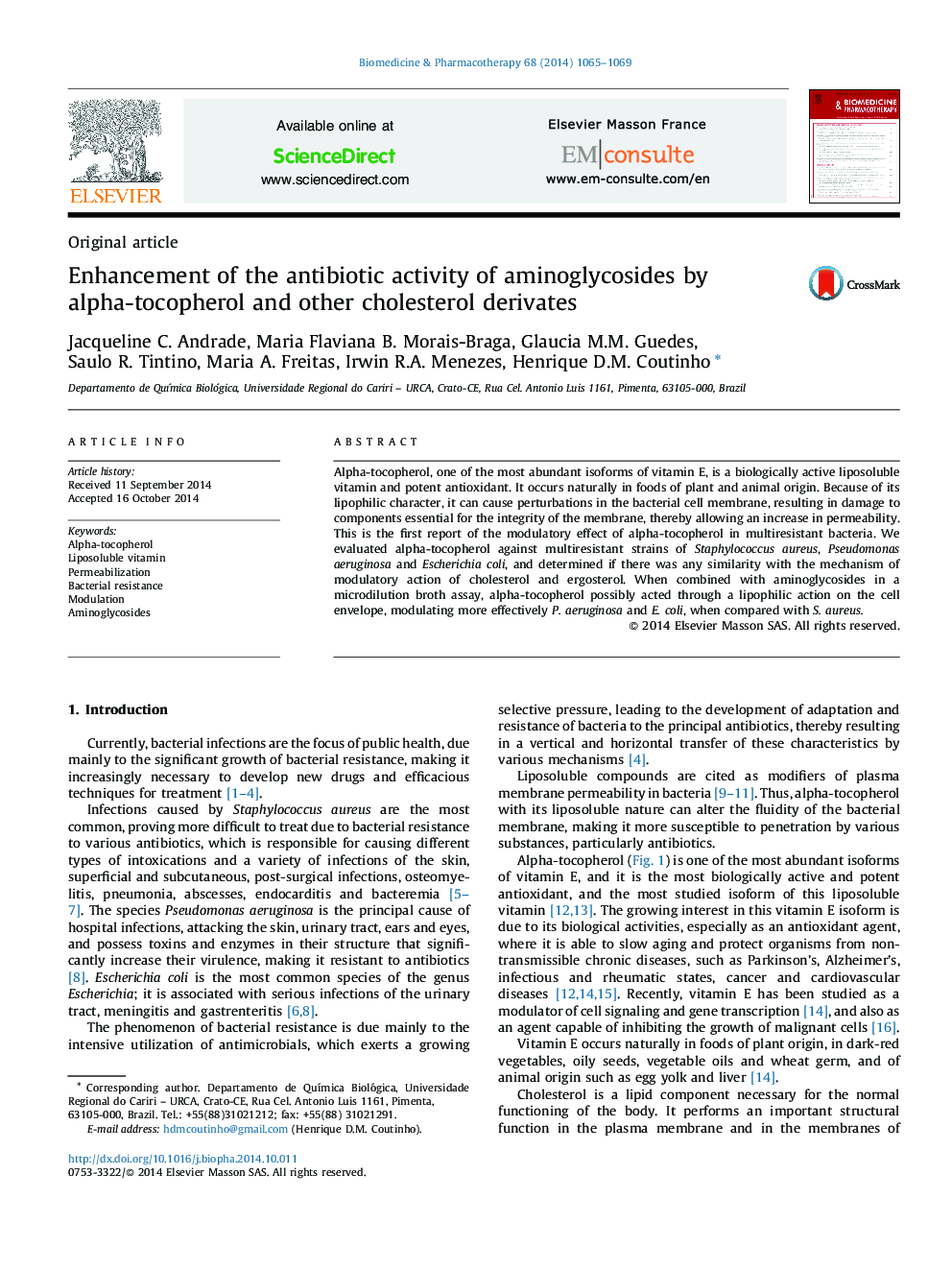| Article ID | Journal | Published Year | Pages | File Type |
|---|---|---|---|---|
| 2524268 | Biomedicine & Pharmacotherapy | 2014 | 5 Pages |
Alpha-tocopherol, one of the most abundant isoforms of vitamin E, is a biologically active liposoluble vitamin and potent antioxidant. It occurs naturally in foods of plant and animal origin. Because of its lipophilic character, it can cause perturbations in the bacterial cell membrane, resulting in damage to components essential for the integrity of the membrane, thereby allowing an increase in permeability. This is the first report of the modulatory effect of alpha-tocopherol in multiresistant bacteria. We evaluated alpha-tocopherol against multiresistant strains of Staphylococcus aureus, Pseudomonas aeruginosa and Escherichia coli, and determined if there was any similarity with the mechanism of modulatory action of cholesterol and ergosterol. When combined with aminoglycosides in a microdilution broth assay, alpha-tocopherol possibly acted through a lipophilic action on the cell envelope, modulating more effectively P. aeruginosa and E. coli, when compared with S. aureus.
